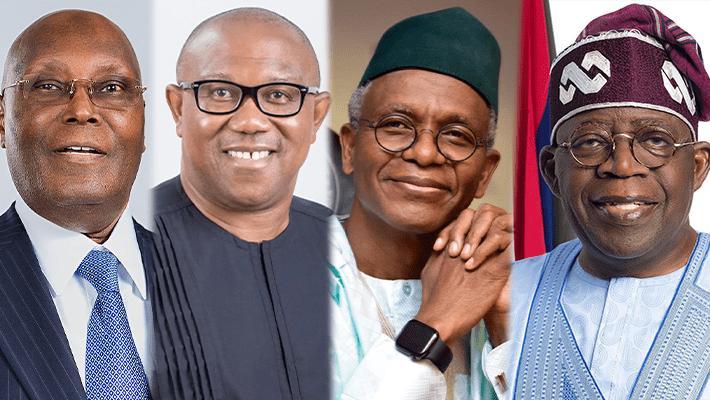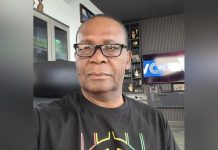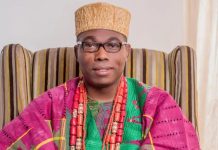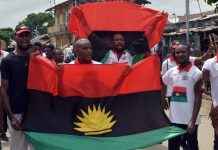
By Abba Hamisu Sani
Africa-Press – Nigeria. Opposition leaders in Nigeria, including former Vice President Atiku Abubakar and former Kaduna State Governor Nasir El-Rufai, have announced the formation of a coalition aimed at unseating President Bola Tinubu in the 2027 general elections.
The announcement has sparked widespread debate among political observers, raising questions about whether leaders with diverse ideologies, ambitions, and party affiliations can successfully work together to deliver on their promise to Nigerians.
Nigeria’s Electoral History and the Role of Political Alliances
Historically, electoral victories in Nigeria have often hinged on political alliances of convenience rather than ideological unity. Coalitions have typically been driven by the necessity to secure power, with some succeeding and others collapsing due to internal disagreements and power struggles.
In the First Republic, the United Progressive Grand Alliance (UPGA) was formed in 1964, comprising opposition parties such as the Action Group (AG) and the National Council of Nigeria and the Cameroons (NCNC) to challenge the ruling Northern People’s Congress (NPC). However, the alliance ultimately failed to achieve its goal.
In contrast, the National Party of Nigeria (NPN) and the Nigeria People’s Party (NPP) formed a strategic alliance in 1979, enabling the NPN to secure a parliamentary majority and form a government.
Attempts by opposition parties like the Alliance for Democracy (AD) and the All Nigeria People’s Party (ANPP) to unite against the ruling People’s Democratic Party (PDP) in 2003 were less successful.
The most notable coalition remains the one that led to the formation of the ruling All Progressives Congress (APC) in 2013, when parties such as the Action Congress of Nigeria (ACN), Congress for Progressive Change (CPC), ANPP, a faction of the All Progressives Grand Alliance (APGA), and the nPDP joined forces. This coalition successfully defeated the PDP in 2015, marking the first time an incumbent government was ousted through democratic elections in Nigeria.
New Opposition Movement Against Tinubu
Now, a similar effort is underway. Atiku Abubakar, Nasir El-Rufai, and other prominent politicians have announced a new alliance aimed at defeating President Tinubu in 2027. However, the coalition has been met with skepticism.
Atiku, the PDP’s 2023 presidential candidate, made the declaration during a press conference in Abuja, attended by several opposition figures, including representatives of Peter Obi and defectors from the APC. Notable attendees included Dr. Yunusa Tanko, Babachir David Lawal, Segun Sowunmi, Soni Monidafe, Dr. Salihu Lukman, Chief Peter Ameh, and Adamu Maina Waziri.
Tinubu’s Reaction to the Coalition
In response, President Tinubu’s Special Adviser on Strategic Communication, Bayo Onanuga, dismissed the coalition, describing its members as “sore losers.”
“President Tinubu is focused on governance and building a prosperous nation. Two months into his midterm, he already has many achievements to showcase. The so-called coalition is merely a gathering of frustrated politicians driven by self-interest, not public good,” Onanuga said during a chat with journalists.
APC spokesperson Felix Morka also criticized Atiku’s call for opposition unity, questioning his credibility and accusing him and others, including Peter Obi and El-Rufai, of blaming the ruling party for their internal party struggles.
Leadership Question: Atiku, Obi, or El-Rufai?
One major question remains: who will lead the opposition coalition?
Since his 2023 electoral defeat, Atiku has been a vocal advocate for an opposition coalition, alleging that the APC aims to establish a one-party state. Analysts believe that failure to form a united front in 2023 cost Atiku and Obi the election. President Tinubu won with 8,794,726 votes (36.61%), while Atiku and Obi secured 6,984,520 (29.07%) and 6,101,533 (25.40%) votes, respectively.
Political analyst Dr. Umar Bello observed that, had Atiku and Obi combined forces in 2023, they could have unseated Tinubu.
While Atiku has consistently pushed for a coalition since the last election, El-Rufai’s recent defection to the Social Democratic Party (SDP) and his call for unity among opposition leaders, including Senator Rabiu Musa Kwankwaso of the New Nigeria People’s Party (NNPP), have added momentum to the movement.
Yet, the question of leadership remains contentious, with each major figure having strong political ambitions.
How This Coalition Differs from the 2013 Merger
Unlike the 2013 merger that formed the APC, where parties dissolved their individual identities, the current opposition movement favours a coalition model. Parties and individuals intend to maintain their distinct platforms while working towards a shared goal: unseating Tinubu in 2027.
Professor Kamilu Sani Fagge, a political analyst, explained that while mergers require the complete unification of parties, coalitions allow flexibility. He noted that a merger would likely be difficult given the competing ambitions and internal challenges facing parties like the PDP and Labour Party (LP).
Meanwhile, the SDP, now hosting El-Rufai, has ruled out merging with other parties, asserting its desire to remain a “third force” in 2027.
Why the Current Coalition Might Struggle
A former lawmaker, who was instrumental in the 2013 APC merger, warned that the current coalition faces serious obstacles.
“Unlike in 2013, when we agreed on Buhari as our undisputed leader and candidate from the start, today’s opposition leaders have competing ambitions. They are also racing against time, and unlike us, they lack a unified party structure and broad national support,” he said anonymously.
He added that defeating an incumbent president like Tinubu, who now has access to significant resources and authority, would require more than a loosely organized coalition.
Conclusion
While political coalitions have historically played crucial roles in Nigerian elections, the success of the Atiku-El-Rufai-Obi alliance remains uncertain. Analysts point to the increasingly enlightened electorate, especially among Nigerian youth active on social media, as a critical factor in the coming elections.
However, the personal ambitions of key players and the lack of a clear leadership structure could undermine the coalition’s chances.
The political atmosphere in 2025 is significantly different from that of 2015, and the opposition will have to navigate many challenges if they hope to replicate the success of the APC’s historic victory.
For More News And Analysis About Nigeria Follow Africa-Press






